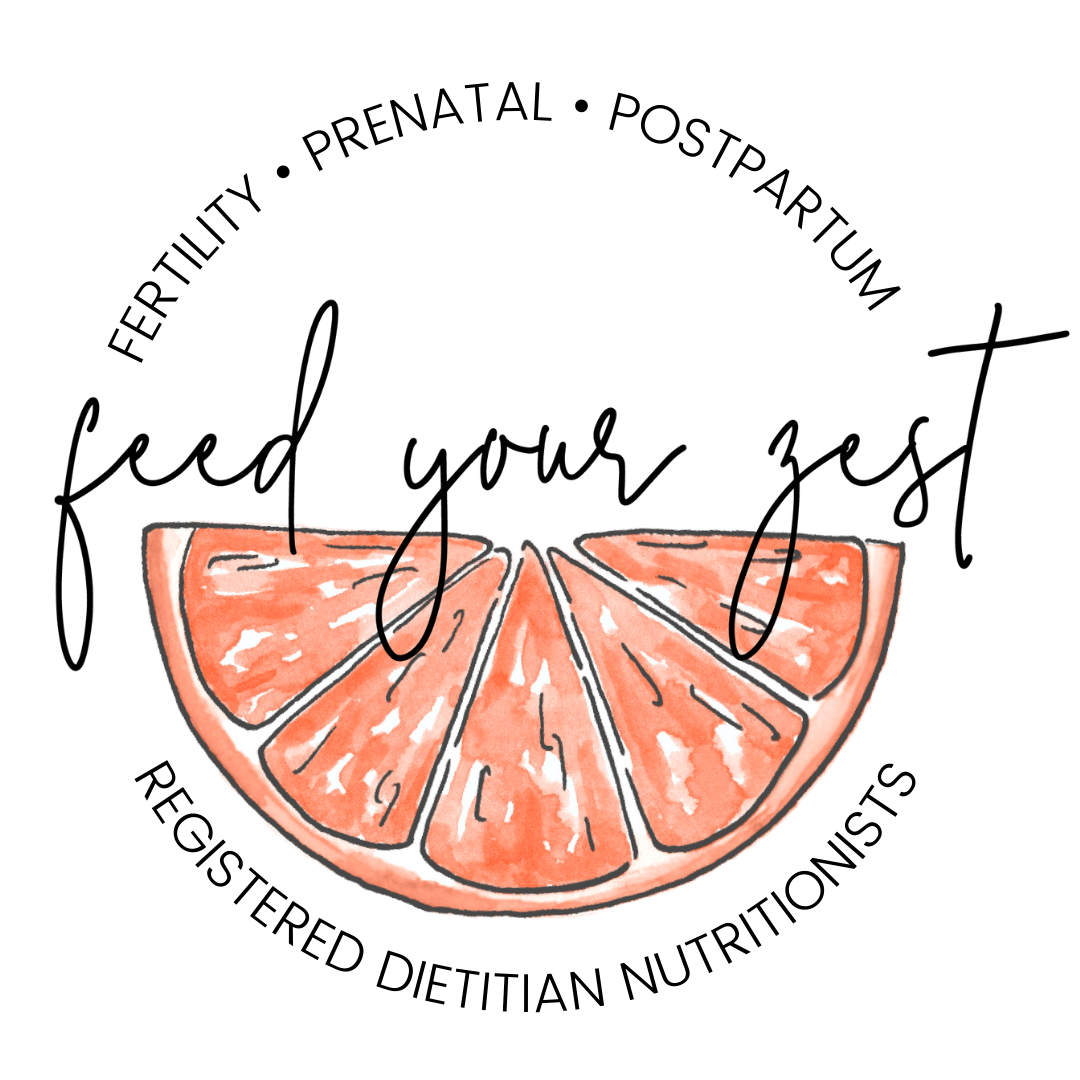Protein shakes, powders, and bars for fertility and pregnancy
This blog post contains affiliate links. Affiliate links help our small business keep providing free resources to you, and helps fund paid internship opportunities to future dietitians.
The journey of fertility, pregnancy, and postpartum recovery all can bring immense joy and anticipation, but can bring feelings of nervousness surrounding how to properly fuel your body. As Registered Dietitians who specialize in reproductive health, one of the questions we frequently encounter is about the role of protein shakes and powders. While these can be a great addition to your diet, it's crucial to prioritize whole foods first and use supplements as just that – supplements. Here's a comprehensive guide to help you make informed choices.
Whole Foods First
Before deciding whether or not to add a protein shake into your diet, it is important to try to get your necessary macronutrients through foods first. Meat and poultry, seafood, dairy, eggs, legumes, nuts, and seeds provide not only protein, but also essential vitamins, minerals, and other nutrients that support fertility and a healthy pregnancy.
When to Consider a Protein Supplement
Protein needs for pregnancy and breastfeeding are higher than previously thought, and may sometimes be difficult to meet through food alone. In addition, we encourage pairing carbohydrates with protein for our patients with PCOS or insulin resistance, and sometimes a supplement can help with meeting this goal. If you are worried about not meeting your protein needs, this would be an appropriate time to consider a supplement. Experiencing morning sickness, having a diminished appetite, and needing a quick source of protein when on-the-go are all reasons why someone might choose to add supplements into their everyday life.
Selecting a Safe Protein Supplement
When considering adding a supplement, it is important to ensure they fit in certain criteria. Here are some things we like to highlight to our clients.
Third-Party Tested
Since the supplement market is not regulated by the FDA, it is important to make sure your product is third-party tested. This verification guarantees that the product is free from harmful contaminants and contains the ingredients listed on the label.
Non-Soy Protein
While whole soy foods like edamame, tofu, and tempeh are generally safe and nutritious (and even protective against certain cancers), soy protein isolates found in many supplements may exacerbate hormonal conditions such as endometriosis, fibroids, and hypothyroidism when consumed in excess. The processing of soy isolates alters phytoestrogens, which may impact hormone balance differently than whole soy foods. Look for ingredients like pea protein, brown rice protein, quinoa protein, chia seed protein, pumpkin protein, peanut protein, almond protein, and more.
Protein Supplement Recommendations
Here are some recommendations that we like to give to our clients here at Feed Your Zest!
Protein Powders: Orgain, Nuzest, Whole Foods 365, Vital Proteins, Needed
Protein Bars: GoMacro, RXBar, Aloha (get 20% off with code FEEDYOURZEST)
Protein shakes, bars, powders can be a valuable addition to your diet during fertility, pregnancy, and postpartum when chosen and used wisely. Remember to prioritize whole foods first, and select supplements that are third-party tested and non-soy based. By doing so, you can ensure that you're nourishing your body in the best possible way during this remarkable journey.
If you want more information about how to get enough protein for YOUR body, click here to schedule a 15-minute FREE discovery call to see if you would be a good fit for our team!

